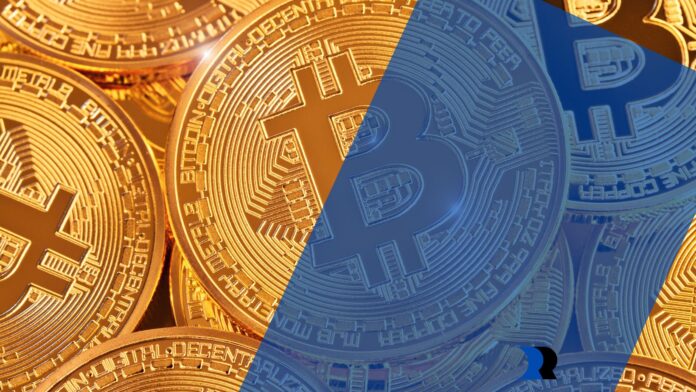In today’s rapidly evolving financial landscape, the world is witnessing the convergence of two major forces: financial inclusion and the rise of cryptocurrencies. As traditional financial systems grapple with limitations and barriers, the integration of Bitcoin remittances offers a promising solution to bridge gaps in global finance. This article delves into the transformative potential of Bitcoin in enhancing financial inclusion and facilitating cross-border remittances. Moreover, examines the benefits of Mir Coin for enterprises and customers.
Understanding Financial Inclusion: A Key Imperative
Financial inclusion, often considered a cornerstone of sustainable development, aims to ensure that all individuals and businesses have access to affordable and reliable financial services. Unfortunately, a significant portion of the global population remains excluded from formal financial systems. This exclusion can be attributed to various factors, including geographical barriers, lack of proper identification, and limited banking infrastructure.
The Role of Bitcoin in Financial Inclusion
Bitcoin, the pioneering cryptocurrency introduced in 2009, has emerged as a potential catalyst for advancing financial inclusion. Operating on a decentralized and borderless blockchain network, Bitcoin transcends traditional banking constraints. Its accessibility and usability transcend geographic boundaries, offering the unbanked and underbanked populations a gateway to participate in the global financial ecosystem.
Accessibility and Inclusivity
Bitcoin’s digital nature eliminates the need for traditional banking infrastructure. With a smartphone and internet connectivity, individuals can create a Bitcoin wallet and engage in transactions, irrespective of their location. This inclusivity extends to individuals in remote and underserved areas who lack access to traditional banking services.
Lower Transaction Costs
Traditional remittance channels often impose exorbitant fees on cross-border transfers, particularly affecting migrants sending money back home.

Bitcoin’s peer-to-peer nature bypasses intermediaries, significantly reducing transaction costs. This feature is especially valuable for lower-income individuals who rely on remittances for financial support.
Financial Sovereignty
Bitcoin empowers individuals by providing them with full control over their financial assets. This self-sovereignty is a stark contrast to traditional financial systems, where intermediaries hold custody of funds. For populations without formal identification, Bitcoin offers a means of securely storing and transferring value.
Challenges and Considerations
While Bitcoin holds immense potential for financial inclusion, several challenges must be addressed:
● Volatility: Bitcoin’s price volatility can pose risks to users, especially those with limited financial knowledge. Efforts to educate users about responsible usage and investment are crucial.
● Regulatory Uncertainty: The regulatory environment surrounding cryptocurrencies varies globally. Clarity in regulations will play a vital role in fostering trust and mainstream adoption of Bitcoin.
Bitcoin Remittances: Facilitating Cross-Border Transactions
In addition to advancing financial inclusion, Bitcoin is making significant strides in revolutionizing cross-border remittances. Traditional remittance methods, such as wire transfers and money transfer operators, often involve delays, fees, and cumbersome processes. Bitcoin offers an alternative that is efficient, cost-effective, and faster.
Speed and Efficiency
Bitcoin transactions occur in real-time and can be completed within minutes. This speed is particularly advantageous for individuals who require immediate access to funds, such as families relying on remittances for essential expenses.
Global Accessibility
Bitcoin’s borderless nature eliminates intermediaries and reduces the complexity of cross-border transactions. This accessibility is vital for individuals who are sending money to family members in other countries.
Empowering Migrants
Migrants often face challenges when sending money to their home countries, including high fees and complex processes. Bitcoin empowers migrants by enabling them to send money directly to their families, minimizing costs and delays.
The Future Landscape: Collaboration and Innovation
As the adoption of Bitcoin and other cryptocurrencies continues to grow, collaboration between fintech companies, governments, and traditional financial institutions will play a pivotal role. Innovative solutions that combine the strengths of both traditional finance and cryptocurrencies can address the limitations of each approach.

● Hybrid Solutions: Hybrid financial services that integrate Bitcoin with traditional banking systems can offer users the benefits of both worlds. This approach could streamline processes, reduce costs, and enhance overall financial access.
● Education and Awareness: Promoting financial literacy and awareness about cryptocurrencies is essential. Educated users can make informed decisions and effectively navigate the complexities of the evolving financial landscape.
● Regulation and Security: Regulatory clarity and robust security measures are paramount for widespread adoption. Collaborative efforts can ensure that cryptocurrencies are integrated into the financial ecosystem responsibly and securely.
Conclusion
In Conclusion, the convergence of financial inclusion and Bitcoin remittances holds immense promise for bridging gaps in global finance. Through its accessibility, affordability, and borderless nature, Bitcoin has the potential to empower individuals and transform cross-border transactions. As the world embraces this technological revolution, collaboration and innovation will shape a future where financial opportunities are truly accessible to all.


